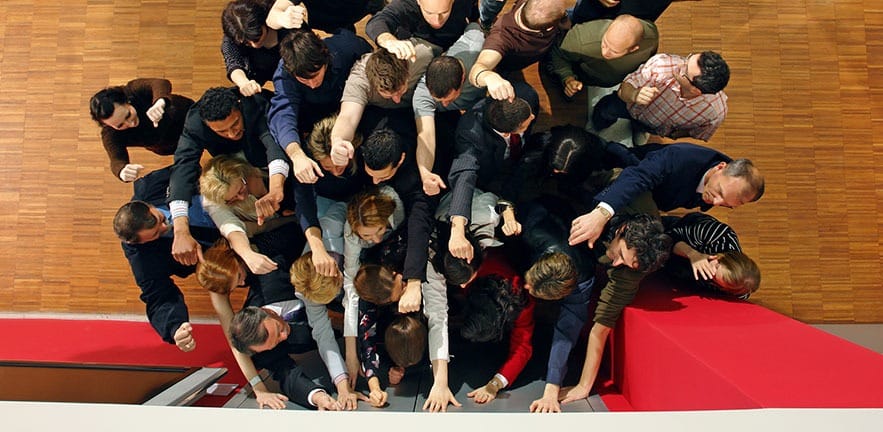Competition involving others can make people more competitive through ‘competition contagion’, says study co-authored at University of Cambridge Judge Business School.

People who are aware of a competition but not directly involved in it can become more competitive through “competition contagion,” says a new study co-authored at Cambridge Judge Business School.
The study, published this week in the Proceedings of the National Academy of Sciences journal in the US, finds that the “mere awareness” of a competition affects non-competitors’ behaviour in similar ways to participants in the competition.
The findings on how non-competitors are influenced by competition have broad relevance to business (for example, the contagion effect of a rivalry between two senior partners to become a firm’s managing partner) and many other aspects of society, the study points out. The findings are also relevant to the recent rise in “gamification” strategies in education, crowdsourcing, marketing and other sectors, which employ competitions to motivate people.
“Noncompetitors can be important to the success of a fundraising event, a company’s productivity, a team’s strength, or a classroom’s progress. Just because an individual does not take part in a competition does not mean they are unaffected by the social comparison dynamics created by it,” the study concludes.
The study – entitled “The influence of a competition on noncompetitors” – is co-authored by Raghabendra P KC, a PhD candidate at Cambridge Judge Business School; Professor Marcus Kunter of Aachen University in Germany; and Dr Vincent Mak, Reader in Marketing and Decision Sciences at Cambridge Judge Business School.

The study revolved around a controlled field experiment involving thousands of customers at a German zoo. Customers could pay what they wanted as an entrance fee, and some were also asked whether or not they wanted to join a competition in which the customer who paid the highest entrance fee would win a prize.
The result: pay-what-you-want customers who were aware of this competition paid a higher entrance fee than pay-what-you-want customers who were not aware of the competition. Similar conclusions were reached when conditions were varied, such as whether there was a single prize or seven smaller prizes. Follow-up online experiments, with over 1,500 participants, provided additional confirmatory evidence.
The authors say one plausible explanation of the comparison contagion effect may be that awareness of an ongoing competition can induce “perceptions of rivalry” among noncompetitors, and thus produce “vicarious competitive arousal”. Such an emotional state can be highly irrational, and heighten social comparison motivation without requiring actual participation or economic interest.
“It is typical in a competition that competitors are far outnumbered by people who do not participate but are aware of it,” the study says. “It is therefore important to consider these noncompetitors when designing competitions.”


